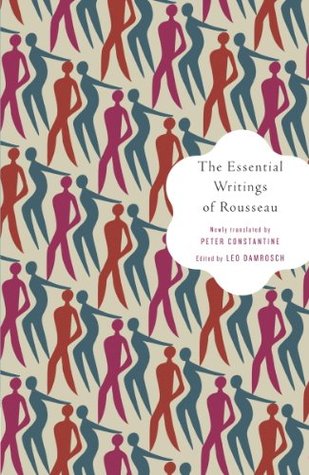Kindle Notes & Highlights
Read between
March 17 - April 24, 2022
What, besides his own labor, can man use in order to acquire things he has not created? Since it is his labor alone that gives the farmer the right to the product of the earth he has tilled, it also by extension gives him a right—at least until the harvest—to the plot of land, and this goes on from one year to the next.
In this state, equality could have prevailed if men’s talents had been equal, and if, for example, the use of iron and the consumption of food had always been in precise balance.
But this balance, not being supported by anything, was soon disrupted; the strongest did the greatest amount of work, those who were most skilled worked to best effect, and the most resourceful found ways of reducing their work.
Man is born free, yet everywhere he is in chains. He who believes himself the master of others cannot escape being more of a slave than they. How did this change come about? I do not know. What can make it legitimate? This question I believe I can answer.
Since no man has natural authority over his fellow men, and since power does not generate any right, it follows that agreement must be the foundation of all legitimate authority among men.
So that this social pact will not be an empty formula, it tacitly includes this obligation, which alone can give power to the others, that whoever refuses to obey the general will shall be compelled to do so by the whole body. This means nothing other than that he will be forced to be free.66 For that is the condition which, by giving every citizen to his state, protects him from all personal dependency. This condition makes up the artifice and skill of the political machine, and alone renders legitimate the civil obligations that without it would be absurd, tyrannical, and subject to the
...more
Though in this state they deprive themselves of a number of advantages that nature gave them, they gain others that are truly great:
To what is acquired in the civil state we could also add moral liberty, since it alone makes man truly a master of himself, for the impulse of mere appetite is slavery, while obedience to laws we prescribe ourselves is liberty. But I have already said too much on this matter, and the philosophical meaning of the term liberty is not my subject here.
When Núñez de Balboa stood on those shores and took possession of the South Seas and all of South America in the name of the Crown of Castile, was his action enough to dispossess all inhabitants and exclude all the other princes of the world from ownership?
All men who may be unequal in strength or intelligence become equal by agreement and by law.
We always desire our own good but do not always discern it.
It is therefore important, if the general will is to be expressed clearly, that there be no partial association within the state and that each citizen assert his own opinion.
One must therefore distinguish clearly between the respective rights of the citizens and the sovereign authority,76 and between the duties the citizens have to fulfill as subjects and the natural right they must enjoy as men.
Instead of relinquishing what is theirs, they have made an advantageous exchange of an uncertain and precarious existence for one that is better and more secure, an exchange of a natural independence for liberty, of the power to harm others for security for themselves, and of a personal strength that others might vanquish for a right that the social union makes invincible.
The legislator is the engineer who invents the machine, while the princely authority is merely the mechanic who sets it up and makes it work.
The Russians will never really be civilized, because civilization was imposed on them too soon. Peter the Great’s genius was imitative but lacked true genius, which creates and constructs everything from nothing.88 Some of the things he did were good, but most were misguided. He saw that his people was barbarous, but did not see that it was not ripe for a civilized political system: he wanted to civilize the people, while what it really needed was to be trained in discipline.
In short, the best and most natural order is for those who are wisest to govern the multitude, as long as one is certain that they are governing it for its profit and not for their own.
[The most useful and shortest way of distinguishing what is good from what is bad is to consider what you would have wished or not wished to happen under another prince].


